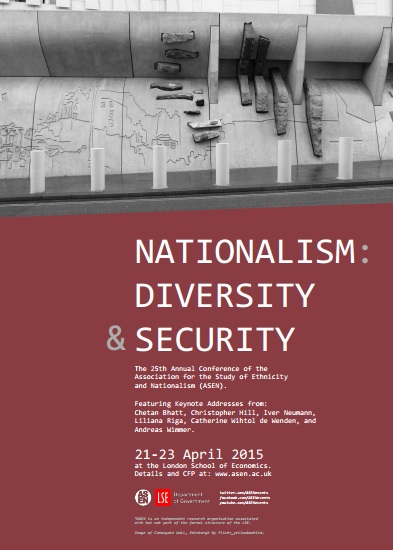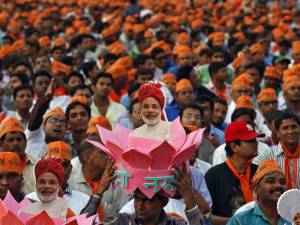 21st-23rd April 2015 at the London School of Economics and Political Science
21st-23rd April 2015 at the London School of Economics and Political Science
This call for papers is also available to download as a PDF, as is a poster advertising the conference.
Nationalists are concerned that the nation should be secure from both external and internal threats. When the state is regarded as a nation-state, these threats are turned into issues of national security and integrity. On the one hand, there are perceived external threats from other states and non-state entities such as international criminal groups and international terrorism. On the other hand, minorities and immigrants may be perceived as internal threats, which do not recognise the legitimacy of the nation-state or are not regarded as truly belonging the nation. Further, in an age of global migration and porous borders it becomes increasingly important to define both who belongs to the nation and from whom they should be protected. This conference considers how both internal and external threats are becoming ever more connected and changing the nature of national security and diversity in nation-states.
Each of the three days of the conference will be punctuated by plenary sessions consisting of presentations from two distinguished academics. The first plenary usually has a theoretical and general focus; the second an historical one; and the third is concerned with contemporary and policy issues. Each provide different perspectives on the conference’s central theme of the relationship between nationalism, security and diversity.
Those wishing to take part in the conference are encouraged to reflect on the many different forms that nationalism, diversity and security interact. Below we outline a range of possible themes and questions which might be addressed by those wishing to give a paper to the conference.
Please submit your abstract online by 15 Decemeber at asen.ac.uk/submit-an-abstract/.
Your abstract should be no longer than 250 words and include your name, institutional affiliation and title, when appropriate. Please ensure that you highlight how your paper relates to the conference theme and the central questions it asks.
The nation-state, national minorities and citizenship
- Is diversity a problem for nation-states? If so, how new is this? What changes have resulted in diversity being framed as a problem?
- How have majority/minority relationships been established before and within the nation-state?
- Are national minorities inherently a security concern?
- Do national minorities generate new forms of nationalism?
- What role does citizenship play when it comes to security and/or national minorities?
- Do national minority policies help or hinder security?
- Is multiculturalism necessary for security in diverse nation-states?
- What role does integration play in the relationship between the nation-state and the citizen?
- What role do national institutions play in securing the state?
- How do political parties respond to questions of minority and security?
- Do far-right groups represent an attempt to return to the essence of nation-states?
Immigration and security
- How and why does mass migration come to be regarded as a cultural or an economic or a political threat?
- What is the relationship between nationalism and immigration?
- Why do particular immigrant groups come to be regarded as a cultural or an economic or a political threat?
- Does the concern with immigration and immigrants generate new kinds of nationalism?
- Do refugees and asylum-seekers pose challenges for nationalism?
- Is statelessness the ultimate form of insecurity?
- What is the relationship between statelessness and nationalism?
- Is immigration policy a manifestation of nationalism?
- Do diaspora communities reinforce nationalism in both ‘host’ and ‘origin’ communities?
International relations and transnational dimensions
- How do theories of securitization and of nationalism relate to each other?
- When it comes to self-determination, is nationalism itself securitized?
- How do transnational organizations such as the UN and the EU affect nationalism? How do they affect perceptions of and strategies for national security?
- What impact does the international human rights framework have on nationalism?
- Are human rights compatible with nationalism?
- Is sovereignty still a valid concept? How does it relate to the concept of national security?
- How do nation-states claim responsibility for co-nationals in other states? Can this create problems of national security?
- Is international terrorism a threat to national security? Is it itself a new form of nationalism?
- What is the relationship between globalization, nationalism and security?
- How do non-state entities (criminal groups, diasporas, radical Islamists, etc.) make claims upon national minorities or immigrant groups? How do nation-states respond to such claims?
- Can nationalism ever be truly international?
- Must the security of one nation-state be secured at the cost of the security of others?
Please email conference@asen.ac.uk if you have any queries.
Please click here for more information.



